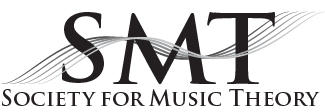Commentary on Neumeyer’s MTO 0.1 essay
Shaugn O’Donnell
REFERENCE: mto.93.0.1.neumeyer.php
Copyright © 1993 Society for Music Theory
[1] Just a quick reaction to Robert Judd’s comments about David Neumeyer’s “Schoenberg at the Movies.” While several of his points are pertinent (e.g., on aesthetics and cognition), the issue of opera composition doesn’t seem particularly relevant. I find a rather substantial genre-gap between opera music and film music (a notable exception being musicals). A film score generally acts as a gloss on the drama, hence the possibility of Neumeyer’s commutation tests, while an opera score is a musical version of the drama. (Just listen to Schoenberg’s Op. 34 on your headphones next time you enjoy a performance of Salome to test this.) I don’t mean to downplay the significance of the relationship between drama and music in either genre, but the two perspectives are remarkably different and therefore merit distinct treatment regarding aesthetic, cognitive, and analytic issues. The contrast between the performance orientation of opera music and the artificial soundspace (created by modern recording technology) of more recent film music further separates these two genres.
[2] In reference to the “tinsel” question: I say it’s all music, from MTV to the concert hall, whether it’s Bartok’s Fourth Quartet, Coltrane’s “Giant Steps,” Lennon’s “Imagine,” or anything else you care to name (Baroque fugue, rap song, etc.). I may be laughably naive, but is there really any need for the continual segregation of the musical world into “cultivated” and “vernacular” traditions?
Shaugn O’Donnell
Queens College/CUNY
odonnell@aaron.music.qc.edu
Copyright Statement
Copyright © 1993 by the Society for Music Theory. All rights reserved.
[1] Copyrights for individual items published in Music Theory Online (MTO) are held by their authors. Items appearing in MTO may be saved and stored in electronic or paper form, and may be shared among individuals for purposes of scholarly research or discussion, but may not be republished in any form, electronic or print, without prior, written permission from the author(s), and advance notification of the editors of MTO.
[2] Any redistributed form of items published in MTO must include the following information in a form appropriate to the medium in which the items are to appear:
This item appeared in Music Theory Online in [VOLUME #, ISSUE #] on [DAY/MONTH/YEAR]. It was authored by [FULL NAME, EMAIL ADDRESS], with whose written permission it is reprinted here.
[3] Libraries may archive issues of MTO in electronic or paper form for public access so long as each issue is stored in its entirety, and no access fee is charged. Exceptions to these requirements must be approved in writing by the editors of MTO, who will act in accordance with the decisions of the Society for Music Theory.
This document and all portions thereof are protected by U.S. and international copyright laws. Material contained herein may be copied and/or distributed for research purposes only.
Prepared by Natalie Boisvert, Cynthia Gonzales, and Rebecca Flore, Editorial Assistants
Number of visits:
677

